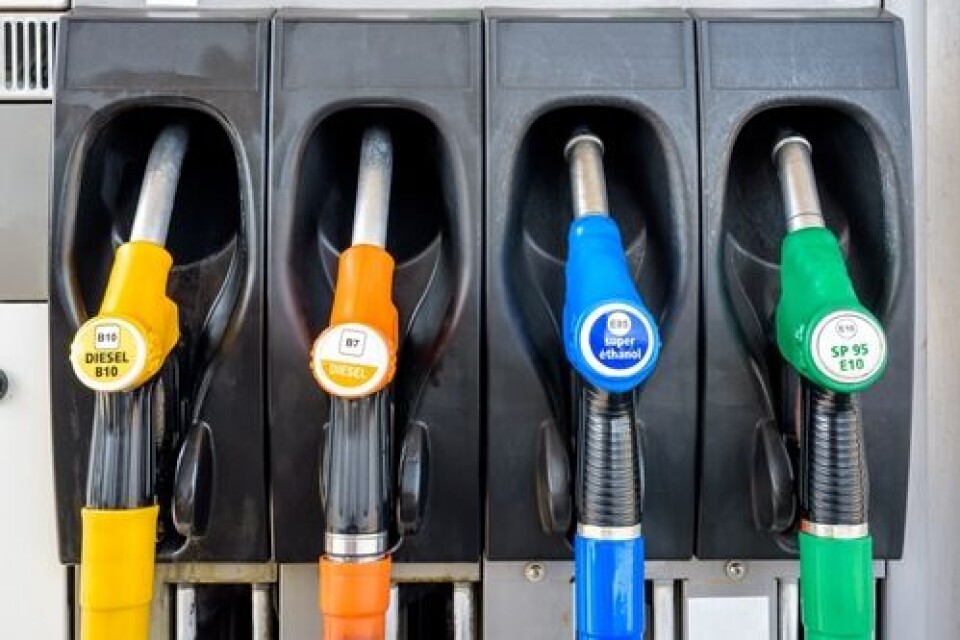-
Key Alpine pass to reopen this summer after €6m repairs
The col d'Allos in Alpes-de-Haute-Provence has been closed since 2023 due to severe weather
-
Why 500,000 people in France will soon be getting a call from health officials
A new campaign will target certain individuals with particular health conditions
-
Receive a book and a rose: France prepares to celebrate its independent bookshops
The 27th edition of the Fête de la librairie indépendante will take place tomorrow (April 26)
Fuel strikes renewed, what is the situation at French petrol stations?
Five refinery and depot sites are still affected by strike action, causing fuel shortages around the country. We look at the worst hit areas

[Update October 17 at 15:45 - President Emmanuel Macron will meet with the ministers concerned by the refinery strike this afternoon to discuss the situation.]
A resolution to the fuel shortages that are still affecting one in three French petrol stations will not begin today, as staff at five TotalEnergies refineries and depots continue striking.
The CGT union has announced that strike action will be renewed today (October 17) at the company’s Normandy, Donges, Feyzin, Flandres and Mède sites, after it refused to sign a salary agreement which did satisfy two other unions, the CFDT and the CFE-CGC.
CGT coordinator Eric Sellini has said that TotalEnergies bosses “do not seem ready to return to the negotiating table”. The union has said that the strikes currently involve 60-80% of the staff who normally keep the refineries running.
Yesterday (October 16), 30.1% of petrol stations across France had run out of at least one product, while on Saturday it had been 27.3%.
The situation is particularly bad in Ile-de-France – where 41.6% of stations are seeing shortages – Centre-Val de Loire, with 42.8%, Bourgogne-Franche-Comté with 39.4% and Auvergne-Rhône-Alpes with 37.9%.
In Hauts-de-France, where the situation had been similarly strained, stocks have improved because of government réquisitions obliging some refinery employees to go back to work in order to provide a minimum service at a Dunkirk depot.
In addition to the refinery strike, tomorrow (October 18), the CGT, FO, Solidaires and FSU unions, along with some others, have called for a nationwide, interprofessional strike.
Several sectors have already announced their intention to participate, including energy and transport.
When are things expected to change?
President Emmanuel Macron had predicted that the situation would return to normal “over the course” of this week on October 11, but yesterday, Public Accounts Minister Gabriel Attal was reluctant to suggest a date when interviewed by Europe 1/CNews/Les Échos.
He did, however, say that because of government réquisitions, “9,000m³ of fuel has been able to come out of the depots, the equivalent of 110,000-120,000 full tanks for people in France.”
Mr Attal added that the continuing strike was “unacceptable [...] especially when agreements have been found with the majority for revised salaries.”
Prime Minister Élisabeth Borne promised during an interview with TF1 yesterday that “the situation will improve this week”, but Transport Minister Clément Beaune has said today that a return to normal should not be expected before next week.
The government has signed a decree prolonging the use of ‘summer grade’ diesel and SP95-E10 until November 15 as opposed to November 1, in order to “more easily use the fuel stocks which would have gone unsold because of the strikes.”
Ms Borne has also threatened refineries with further réquisitions if the strain on supplies continues. A réquisition is set to begin at the Feyzin refinery at 14:00 today.
She asked striking workers to “respect the majority agreement [found with TotalEnergies bosses] and to stop blocking the country”.
Related articles
Fuel shortages update: Strikes to continue at five French refineries
French fuel shortage: How to check stocks at your local petrol station
Which sectors are expected to join strike in France next Tuesday?
























